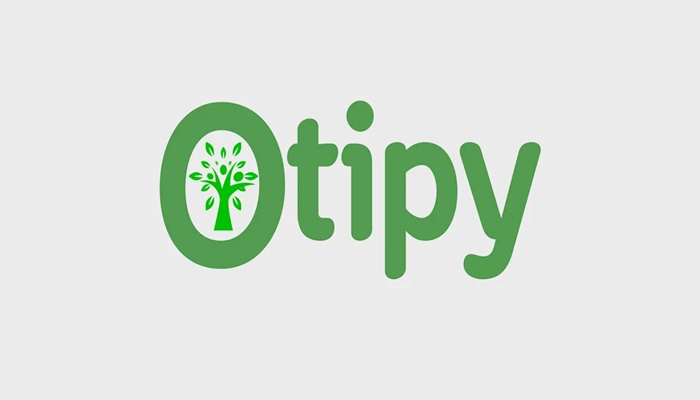On Wednesday, at 5am, a senior executive who tests games for MPL was woken up with a call from his parents. He never gets a call that early and thought it was some kind of emergency. “Do you have your job?” they asked. He was flabbergasted at the line of questions, and while they hounded him with questions, he saw missed calls from his brother as well. He had no idea until he saw the messages from his friends, colleagues and even former colleagues asking him what would happen next.
The MPL employee is among 2 lakh employed with 400 online gaming companies whose future is at stake as the government aims to bring down the shutters on fantasy sports, online rummy, poker, and other real-money games.
On Wednesday evening, The Promotion and Regulation of Online Gaming Bill, 2025, was cleared in the Lok Sabha. Online gaming firms, with this move, find themselves one step closer to facing a blanket ban of their services in India—subject to it being cleared in the Upper House as well.
Union IT minister Ashwini Vaishnaw said on Wednesday that while there will be job losses from online gaming firms, the Union government’s Bill also facilitates promotion of esports and casual gaming ventures—which will help migrate many of the jobs lost.
Vaishnaw told Mint that unless there are objections, the law is likely to be notified in the next three months.
“We have calls throughout the day, and although the managers have little idea, there will be many who will hunt for new opportunities. Will they ban all online money games or certain ones like poker. Who will take care of the lakhs of us in this economy?” the MPL employee asked out loud at a 12 pm call withMint.
A specially appointed committee will monitor any game regarding money usage and monetary returns. Casual games, on the other hand, do not involve a player winning financial returns as the end goal.
Employee movement
The employees are sounding out their peers who are in the IT and non-money related gaming sector for a job. “There is a demand for engineers and game developers, quality assurance, coders and those who can build platforms in the IT, ITes and healthcare sector. Last year, when the government introduced a 28% tax, some of the junior and middle order had moved to these industries that need similar profiles. Now, more will flock,” said another senior executive at an online gaming company who builds and tests video games for a multinational.
However, the issue here will be that the opportunities will be few since IT and ITes firms, too, have slowed down on their hiring. In fact, the top order will have to slash their compensations to join other firms, including players in the gaming sector who may not be impacted. “This was in the works, and one could see it happening as senior executives approached us for jobs and were willing to take a pay cut. The online money gaming industry pays at least twice as much as us, and we will see how many of these profiles are relevant to us,” said the CXO of a mobile gaming firm who did not want to be named.
A senior executive at one of the top four online gaming firms said that the company is already seeing employees starting to look out for alternative employment avenues. “The law essentially blindsided the industry, and we’ve had no chance to converse with the government about any concerns that it had. In the long run, this only adversely impacts the industry, because players who enjoy a game of rummy will not stop playing—instead, they will simply move to offshore apps that do not offer any employment to anyone.”
Vaishnaw confirmed that the government constantly monitors and bans online links to offshore platforms. “It is a game of law, and law versus perpetrators is a constant chase between the two,” he said.
Game of skill
The executive also added that there is “no way for any gaming firm to continue operating with alternative approaches, especially since the Bill makes no segregation between a game of skill and a game of chance.”
According to a study by consulting firm EY in 2023, from FY20 to FY23, the online gaming segment in India grew at a 28% CAGR, culminating in a market size of ₹16,428 crore in FY23. The study was called – New frontiers – Navigating the evolving landscape for online gaming in India. Industry had then estimated would reach ₹33,243 crore in FY28, showing a 15% CAGR. The real money gaming (RMG) sub-segment constitutes a substantial part of the online gaming ecosystem, comprising 82.8% of the market share in FY23.
But now the picture ahead may show a whole different set of numbers.
A 24-year-old engineer from Hyderabad, who plays Stake and MPL at least three times a week, has earned around ₹15,000 from these platforms so far. “It was a good source of income, but without money involved, it’s just like any other game, and then there’s no point,” he said.
According to recruiters, while the flurry of resumes is yet to hit their platforms, the latest rule will plug the income of a lot of freelancers and gig workers. “There were IT and GCC (Global Capability Centre) executives who worked as coders for the gaming companies, earning $30-40 an hour. That will stop,” said a Bengaluru-based IT and GCC recruiter.
Addiction issues
The Bill sought a complete ban on the operation of online gaming startups that require users to play with real money, as well as criminal and financial penalties for those enabling payments on such apps, including banks, and those advertising their services. Notable public figures such as athletes and actors have, over time, appeared as ambassadors to the likes of Dream11, Gameskraft’s Rummyculture, Games24x7’s My11Circle, and more.
Most suggest that even though the industry has claimed that 50 crore people play real-money games in India, the reality is not so widespread. In an interview with Mint, S. Krishnan, ministry of electronics and information technology (Meity) secretary, said, “The bill was framed after taking into account thousands of user complaints over the years, of people who have lost thousands of crores while playing these games. The algorithms are designed to be addictive, and none of the titles had any checks to restrict the way these titles proliferated. The government had ample evidence that such a law is the need of the hour.”
Krishnan further added that the government does not intend to restrict creative fields, and the bill banning online gaming also promotes e-sports and casual, social gaming. “There will be some impact, of course, in areas such as taxation, and while there will be some impact on the number of jobs being churned, we are also doing enough to promote other sectors where jobs will also be generated,” he said.
A second senior executive at another top online gaming firm said that the industry is already seeing engineers and other executives seeking jobs elsewhere. “The online gaming industry created robust employment and offered hefty perks to build an industry that could have emerged as a top contributor to the economy. Instead, these engineers are now looking at other options—whatever they can find, frankly—which would neither be fulfilling nor as well-paying as high-growth startups,” he said.
Deepro Guha, associate director at public policy firm The Quantum Hub, said that “while the government has highlighted the employment generation potential of the new online gaming bill, it is currently unclear what impact the law would have on employment in the gaming sector as a whole.”
There are some provisions in the bill for the promotion of esports and non-money online social games, he said. “However, there is apprehension within the industry that the ban on money games will have calamitous effects not only on this segment, but also on non-money segments. This is because India’s gaming ecosystem is symbiotic: while money games attract capital, top talent, and drive innovation in tech and compliance, the non-money sector benefits through spillover in design, monetisation models, and rotating talent pools. Curtailing it is, therefore, likely to indirectly stifle non-money growth, undermining the potential of the online gaming sector as a whole.”
Esports and casual gaming firms, however, expect a fillip. Deepak Ail, chief executive of Dot9 Games, which made the Indian action game Fau-G, said that the government’s decision to “provide a strong framework for gaming allows us to nurture original IP that represents and reflects our culture.”
Source – https://www.livemint.com/news/india/gaming-ban-puts-lakhs-of-jobs-in-uncertainty-11755693261432.html




















